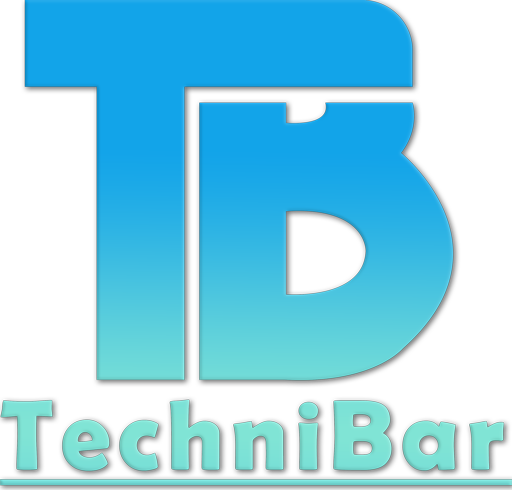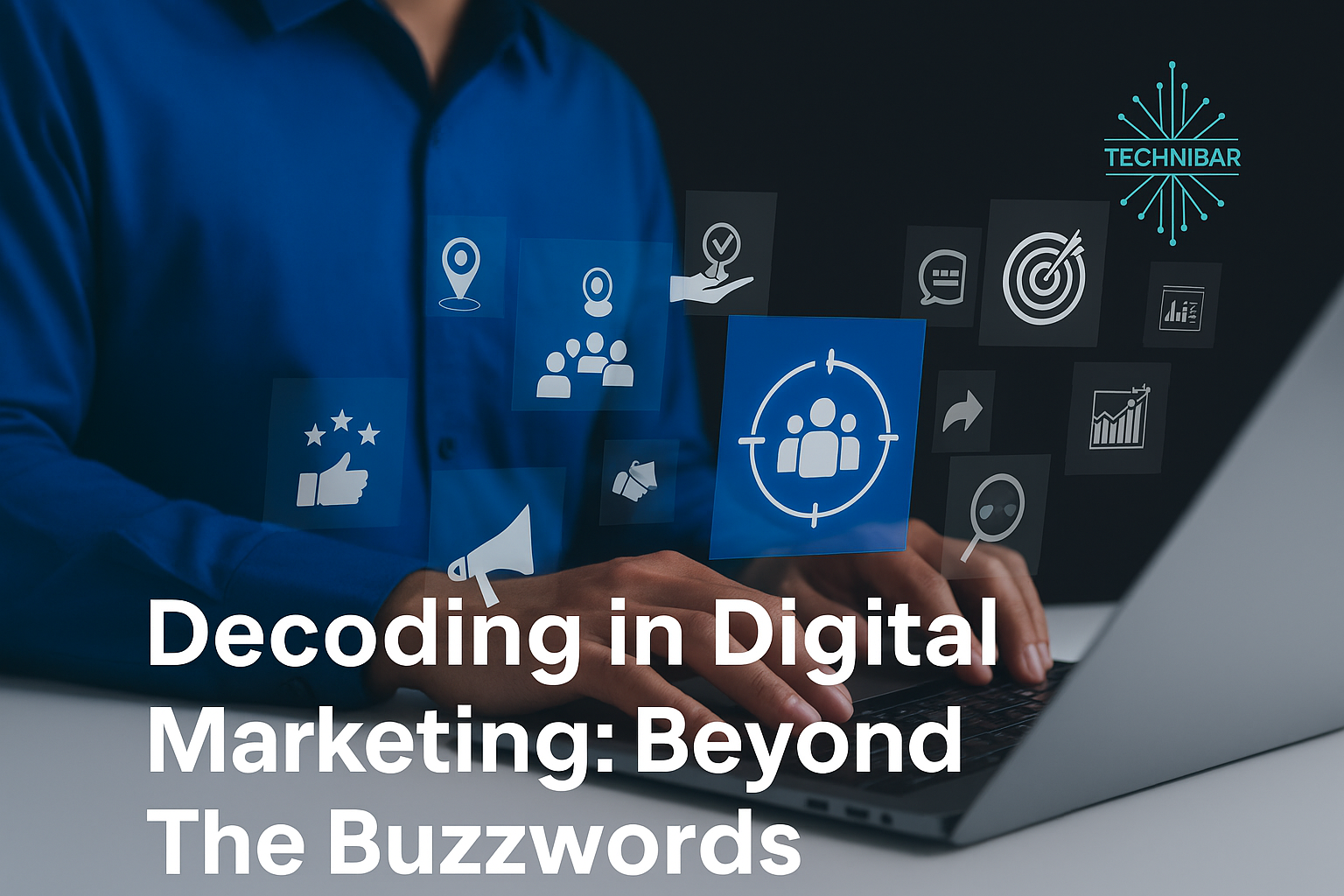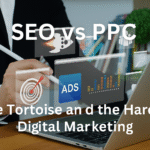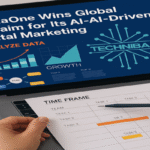Digital marketing is the use of digital channels, promoting products, service technologies, brands to a targeted audience. In other words, digital marketing is marketing done through the internet through the internet and electronic devices. It includes online methods such as search engines, social media marketing, email marketing, content marketing, affiliate marketing, audio or video marketing, lead generated, text messaging and mobile apps to reach and engage with potential customers. Digital marketing is significant because customers spend most of their time. Unlike traditional marketing, digital marketing allows for precise targeting real-time performance, tracking. Traditional marketing refers to conventional methods for promoting products and services using offline channels. Digital marketing compared to traditional marketing is more flexible and measurable. Digital marketing bridges this gap by offering affordable, measurable and highly effective strategies.
Definition and Characteristics
Digital marketing is marketing done through the internet and electronic devices. Digital marketing is characterized by its data-driven approach ability to target specific audience, interactive and engaging content, global reach, adaptability and cost effectiveness.There are many characteristics such as follow:
- Internet-based
- Global reach
- Cost effective
- Highly competitive
- Personalization
Inside the Engine: Understanding the Mechanics of Digital Marketing
In the modern age of rapidly growing digitalization, all companies, large or small, consider digital marketing as the main method of reaching, engaging, and converting customers. It is a mechanism to approach a target audience, learn its way of behavior and create brand awareness by using different online marketing strategies. Each click, view, share and purchase may be monitored, measured and improved in the performance. Basically, it is all about reaching out to prospective clients where they spend time on the internet. One of the most important mechanics of digital marketing is data analytics.Data analytics is the process of examining raw data to draw conclusions, make predictions, and inform decision making.The science behind digital marketing lies in its ability to blend psychology, technology, and data analytics into a measurable and effective system.
Exploring the pillars of digital marketing success
The core pillars of digital marketing can be categorized in various ways, but generally can be added:
Search engine optimization
SEO is considered the foundation of digital marketing because most online tours begin with a search.It helps optimize your website and content to rank higher in search engine result pages.
Email marketing
Email is often seen as the backbone of customer retention. Creating an email list to nurture leads, send email campaigns to target your audience, products or services and maintain a relationship with the audience.
Content marketing
Content marketing is at the heart of digital marketing because it supports every strategy. It centers on the consumption or production of meaningful, relevant and uniform content to appeal and connect with a desired segment of the market and eventually achieve profitable customer behavior.
Social media marketing
Social media marketing is one of the most powerful tools in digital marketing. One of the most effective weapons in online marketing is social media marketing because it helps to reach customers directly. Engaging your audience on the social media platform, create brand awareness, drive traffic to your online space and cultivate a community.
Affiliate marketing
Affiliate marketing plays a supportive yet powerful role in digital marketing because it builds trust. An affiliate markets a product or a service (usually using its special affiliate links) via channels like blog posts, social media or email.
Audio marketing
Audio marketing refers to the use of sound based content to promote products, services. The difference between audio advertising and other forms of marketing is that it may be quite experiential, as well as, engaging.
Website marketing
Website marketing is defined as the promotion of your site on the net. It is one of the channels of online marketing that you could employ as a part of your general digital marketing. The principal objective of a web-based marketing campaign is to attract more traffic within your site.
KPIs in Action: Measuring What Matters in Digital Marketing
In digital marketing, a Key Performance Indicator (KPI) is a measurable value that demonstrates how effectively a marketing strategy is achieving its objectives. But generally can be added:
Website traffic
Website traffic measuring the number of visitors to a website.Website traffic monitoring allows the evaluation of the efficiency of the marketing strategies, estimating their weak points, and learning how the audience responds to them.Website traffic show campaign effectiveness.
Organic Traffic
Organic traffic are metrics used to measure the performance of your website visibility and traffic from unpaid search engine results like google, bing, or yahoo.Measure organic traffic uses google analytic and google search console.
Conversion Rate
The primary focus of the conversion Rate in digital marketing is related to the fact that the outcomes of campaigns are directly linked to conversionization rates. It is what ties the marketing efforts and the growing revenues.Conversion rate is a key concept in digital marketing
- Optimize marketing speed
- Boost ROI
- Identify areas for improvement
Bounce Rate
In digital marketing, bounce rate can be considered as one of the most important Key Performance Indicator (KPI) that indicates the percentage of people who visit a web site and leave it without seeing any pages. It states the level of interest and relevance of the content contained on a web site.
Cost per click
Cost Per Click (CPC) forms such an important Key Performance Indicator (KPI) in digital marketing, so it is important to understand what the term means. CPC is followed across different advertising media such as Google Ads, Bing Ads, social media etc.
Digital Marketing Demystified: Benefits and Drawbacks Explained
There are many benefits digital marketing some given:
Benefits
Faster communication
The advantages of digital marketing are that it takes less time to communicate with customers, respond to their queries, and share information, and be able to adjust to the new realities on the market.
Global Reach
The major benefit of digital marketing is global reach, where businesses are able to touch customers globally without being limited by geographic boundaries that are characteristic with traditional marketing.
Higher ROI. Potential
This aids in analyzing effectiveness of marketing tactics in accomplishing business objectives, such as improving the sales, leading, or promoting brand awareness.
Drawback
Technical Issue
There is a broad range of technical concerns considered in digital marketing, such as the functionality (loadings and disconnections, broken links and so forth) of the websites, the lack of ROI measurement means, data privacy and security, and the uncertainty about the ever-changing technology occurrences.
Require expertise
In order to succeed in digital marketing, an individual must be qualified in various fields such as handling social media, content, search engine optimization, data analysis and email communications.
Security Risk
Notwithstanding its power, digital marketing is at the risk of extremely powerful security threats, where data breaches, phishing icons, and malware infections most importantly present themselves.
The Road Ahead: Exploring the Future of Digital Marketing
The future of digital marketing is poised for significant transformation, driven by advancements in AI, Immersive technologies, and shifting consumers behavior. AI tools are transforming how business analyzed data predict consumer behavior and personalize campaigns.The future of digital marketing will be shaped by AI, automation, voice search data driven, strategies, short form videos, influencer, first privacy approach, hyper personalized.
Conclusion
Digital marketing has become the backbone of modern business growth.Digital marketing is essential for business to thrive in today’s competitive landscape. It offers cost -effective, measurable and highly targeted strategies, compared to traditional marketing. From SEO, email marketing, content marketing, mobile marketing, audio marketing, social media marketing, affiliate marketing, website marketing. Digital marketing is a powerful tool that helps businesses connect with the right audience at the right time.
FAQS
1. What is remarketing?
Remarketing or retargeting can be identified as a type of digital marketing that includes showing relevant advertisements to people who have already used a Web page, application, or another online resource.
2. How can digital marketing help small businesses?
Digital marketing could help small firms substantively through the cost-efficient means of reaching a greater audience base and brand development, as well as its end-sales.
3. How do I start a career in digital marketing?
The best way to start a career in digital marketing would be to develop the skill of relevance, create a resume, and establish the actual application leg of skills as an online course, freelancer, or a volunteer.
4. What role can data analytics play to enhance digital marketing campaigns?
Through data analytics, marketers are also able to see or tell how their marketing campaigns are doing well or failing in the process. One would aim at measuring the customer behavior trend regarding a brand and a product through the data presented on the metrics such as click-through, conversion and the engagement rate to determine the data pertaining to the campaign.
5. What are the digital marketing skills?
Digital marketing requires technical and soft skills. The key technical skills include SEO, content marketing, use of social media marketing, data analysis and paid advertising (PPC).












